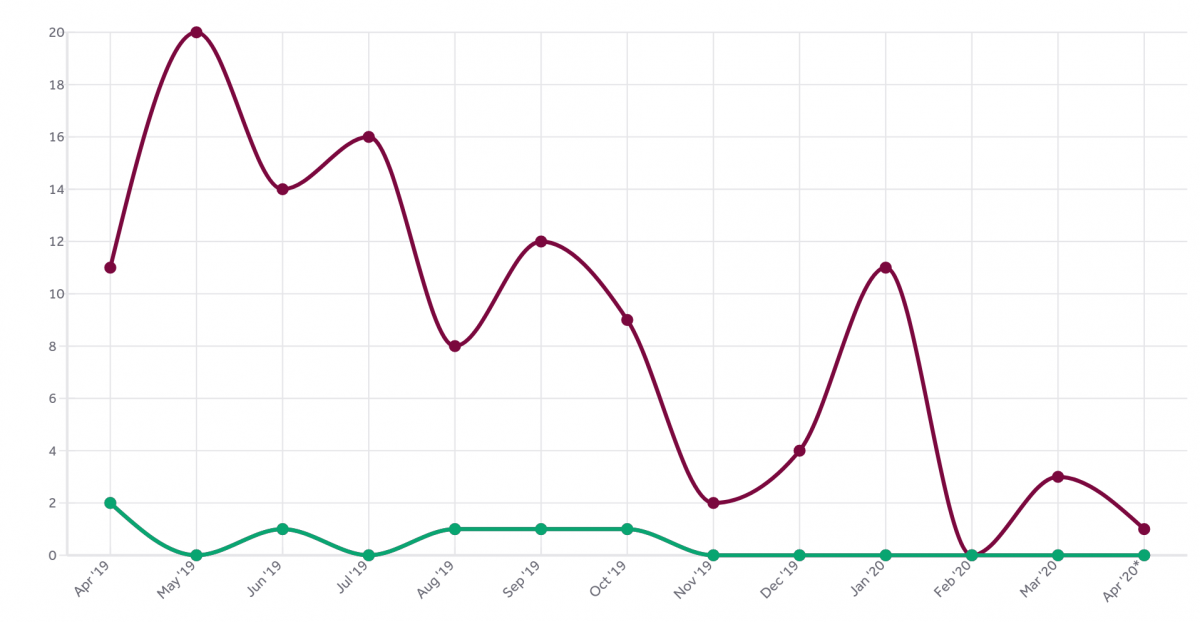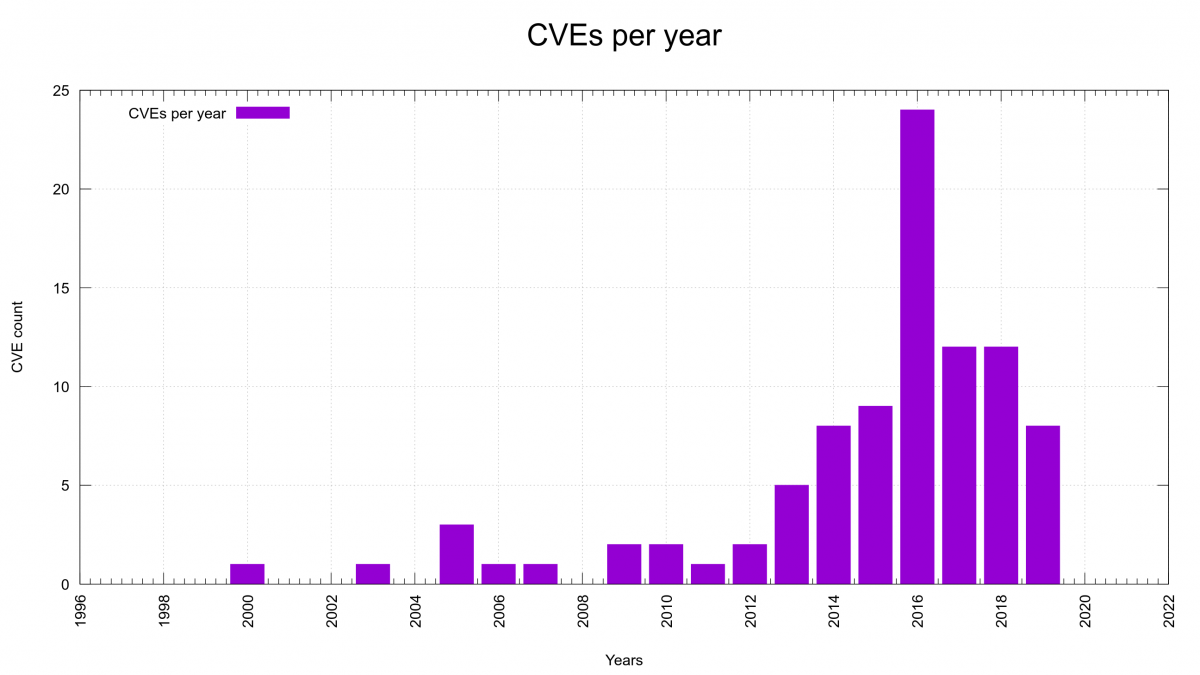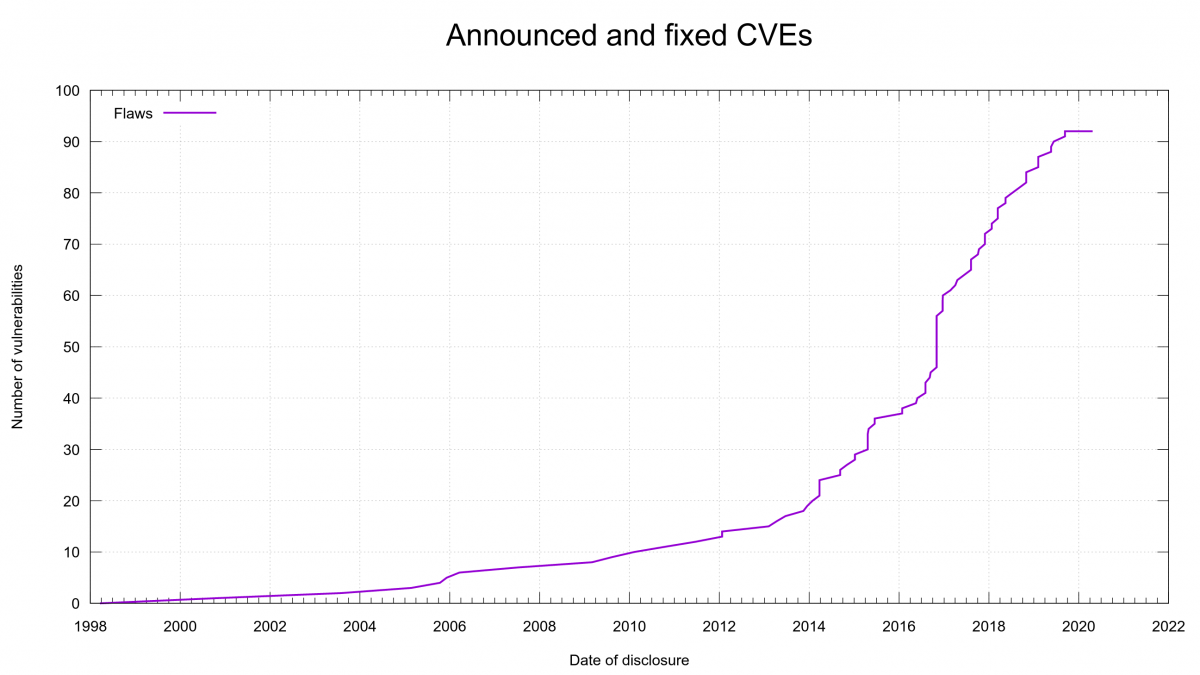On April 22nd 2019, we announced our current, this, incarnation of the curl bug bounty. In association with Hackerone we now run the program ourselves, primarily funded by gracious sponsors. Time to take a closer look at how the first year of bug bounty has been!
Number of reports
We’ve received a total of 112 reports during this period.
On average, we respond with a first comment to reports within the first hour and we triage them on average within the first day.
Out of the 112 reports, 6 were found actual security problems.

Bounties
All confirmed security problems were rewarded a bounty. We started out a bit careful with the amounts but we are determined to raise them as we go along and we’ve seen that there’s not really a tsunami coming.
We’ve handed out 1,400 USD so far, which makes it an average of 233 USD per confirmed report. The top earner got two reports rewarded and received 450 USD from us. So far…
But again: our ambition is to significantly raise these amounts going forward.
Trends
The graph above speaks clearly: lots of people submitted reports when we opened up and the submission frequency has dropped significantly over the year.
A vast majority of the 112 reports we’ve received have were more or less rubbish and/or more or less automated reports. A large amount of users have reported that our wiki can be edited by anyone (which I consider to be a fundamental feature of a wiki) or other things that we’ve expressly said is not covered by the program: specific details about our web hosting, email setup or DNS config.
A rough estimate says that around 80% of the reports were quickly dismissed as “out of policy” – ie they reported stuff that we documented is not covered by the bug bounty (“Sirs, we can figure out what http server that’s running” etc). The curl bug bounty covers the products curl and libcurl, thus their source code and related specifics.
Bounty funds
curl has no ties to any organization. curl is not owned by any corporation. curl is developed by individuals. All the funds we have in the project are graciously provided to us by sponsors and donors. The curl funds are handled by the awesome Open Collective.
Security is of utmost importance to us. It trumps all other areas, goals and tasks. We aim to produce solid and secure products for the world and we act as swiftly and firmly as we can on all reported security problems.
Security vulnerability trends
We have not published a single CVE for curl yet this year (there was one announced, CVE-2019-15601 but after careful considerations we have backpedaled on that, we don’t consider it a flaw anymore and the CVE has been rejected in the records.)
As I write this, there’s been exactly 225 days since the latest curl CVE was published and we’re aiming at shipping curl 7.70.0 next week as the 6th release in a row without a security vulnerability to accompany it. We haven’t done 6 “clean” consecutive release like this since early 2013!
Looking at the number of CVEs reported in the curl project per year, we can of course see that 2016 stands out. That was the year of the security audit that ended up the release of curl 7.51.0 with no less than eleven security vulnerabilities announced and fixed. Better is of course the rightmost bar over the year 2020 label. It is still non-existent!

As you can see in the graph below, the “plateau” in the top right is at 92 published CVEs. The previous record holder for longest period in the project without a CVE ended in February 2013 (with CVE-2013-0249) at 379 days.
2013 was however quite a different era for curl. Less code, much less scrutinizing, no bug bounty, lesser tools, no CI jobs etc.

Are we improving?
Is curl getting more secure?
We have more code and support more protocols than ever. We have a constant influx of new authors and contributors. We probably have more users than ever before in history.
At the same time we offer better incentives than ever before for people to report security bugs. We run more CI jobs than ever that run more and more test cases while code analyzers and memory debugging are making it easier to detect problems earlier. There are also more people looking for security bugs in curl than ever before.
Jinx?
I’m under no illusion that there aren’t more flaws to find, report and fix. We’re all humans and curl is still being developed at a fairly high pace.
Please report more security bugs!
Credits
Top image by Luisella Planeta Leoni from Pixabay

